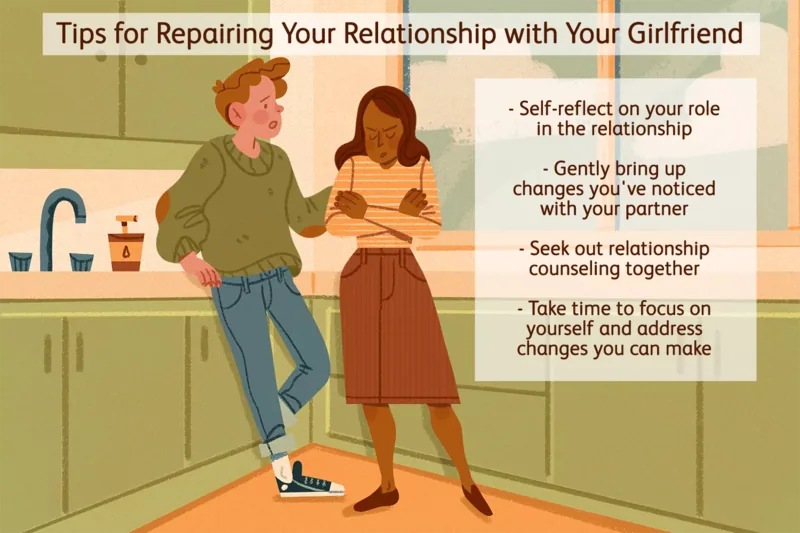A quick and easy way to improve your well-being and boost your mental health.
In today's fast-paced world, finding moments of calm and appreciation can feel challenging. However, starting a gratitude meditation practice is a simple yet powerful way to significantly improve your mental health and overall well-being. This practice involves consciously focusing on and acknowledging the things you are thankful for, offering a fresh perspective on life's challenges. By regularly engaging in a gratitude meditation practice, you can enhance your mood, reduce stress, and cultivate a deeper sense of happiness. It’s a flexible discipline that can be integrated into any routine, making it accessible for everyone looking to foster a more positive mindset in 2025 and beyond.
Prerequisites for Your Gratitude Journey
The beauty of a gratitude meditation practice lies in its simplicity and accessibility. Unlike many other wellness routines, there are virtually no prerequisites. You don't need special equipment, a quiet room, or extensive prior meditation experience. All that's required is a willingness to engage your thoughts and feelings, and a few minutes of your time each day.
This practice can be done anywhere, whether you're commuting, waiting in line, or simply taking a break. It's about shifting your internal focus, rather than altering your external environment. An open mind and a gentle approach to self-observation are your most valuable tools as you embark on this journey. Remember, the goal is not perfection, but consistent effort and self-compassion.
1. What is Gratitude Meditation?
Gratitude meditation is a conscious act of recognizing and appreciating the positive aspects of your life, both big and small. It differs from traditional meditation, which often focuses on clearing the mind, by actively directing your attention towards feelings of thankfulness. This practice can take various forms, from quiet contemplation to journaling, making it highly adaptable to individual preferences and lifestyles (Studies, 2024). It's not about ignoring difficulties but about broadening your perspective to include the good.
Historically, the practice of gratitude is deeply embedded in human culture, spanning religious, philosophical, and even evolutionary contexts. Ancient philosophies and spiritual traditions across the globe have long emphasized the importance of thankfulness for personal well-being and community cohesion. It's believed that early human societies that recognized and reciprocated acts of altruism were more likely to thrive, fostering a deep-seated connection between gratitude and positive social outcomes (Research, 2024). This historical lineage underscores why gratitude feels inherently beneficial to our collective psyche.
In a modern context, a gratitude meditation practice helps us counteract the natural human tendency towards a "negativity bias," where our brains are often more attuned to threats and problems. By deliberately focusing on gratitude, we train our minds to seek out and acknowledge positive experiences, relationships, and circumstances. This mental training can lead to profound shifts in how we perceive and interact with the world around us, fostering resilience and emotional balance. Whether you choose a guided audio session or create your own silent reflection, the core principle remains the same: intentionally cultivating appreciation.
There are many ways to engage in a gratitude meditation. You might set aside a few minutes each morning to actively identify specific things that bring you joy or comfort. Another popular method is keeping a gratitude journal, where you write down a list of things you're grateful for each day, providing a tangible record of your positive reflections. Alternatively, you can practice "in-the-moment" gratitude, acknowledging something you appreciate as it happens, like the warmth of a sunny day or a kind gesture from a stranger. The flexibility of this gratitude meditation practice means you can tailor it to fit seamlessly into your daily life, making it a sustainable habit for long-term mental health improvement.
2. Proven Benefits of a Gratitude Practice
Engaging in a consistent gratitude practice offers a wide array of scientifically supported benefits that extend across mental, emotional, and even physical well-being. Studies have consistently demonstrated that cultivating a grateful mindset can significantly increase feelings of happiness and overall life satisfaction (Harvard Health, 2024). This isn't just a fleeting emotion; mindful gratitude has the power to literally rewire your brain, enhancing your capacity to navigate future challenges with greater resilience and a more positive outlook (Studies, 2024).
Specifically, the documented advantages of incorporating gratitude and gratitude meditation into your routine include:
- Improved Mood and Mental Well-being: Regularly acknowledging positive aspects of life can elevate your daily mood and foster a more optimistic general disposition (Research, 2024).
- Decreased Symptoms of Stress, Anxiety, and Depression: Focusing on thankfulness can reduce the mental rumination associated with negative emotions, offering a powerful counterpoint to feelings of worry and sadness (Studies, 2024).
- Increased Feelings of Happiness: By shifting focus from what's lacking to what's abundant, individuals report higher levels of joy and contentment (Harvard Health, 2024).
- Enhanced Self-Compassion and Empathy for Others: Gratitude often extends beyond oneself, fostering a greater appreciation for the contributions of others and promoting a sense of interconnectedness (Research, 2024).
- Lower Levels of Depression in Chronic Illness: For those facing ongoing health challenges, gratitude can serve as a coping mechanism, helping to mitigate depressive symptoms by highlighting sources of strength and support (Studies, 2024).
- Support for Recovery from Addiction: Incorporating gratitude into therapeutic interventions has shown promise in aiding recovery for individuals dealing with alcohol and substance use disorders, providing a positive focus (Research, 2024).
- Increased Trust in Social Interactions: Grateful individuals often perceive others more positively, leading to greater trust and healthier social bonds (Studies, 2024).
- Promotion of Post-Traumatic Growth: In the aftermath of trauma, a gratitude focus can help individuals identify positive changes and personal growth that emerge from adversity, rather than solely dwelling on the negative impacts (Research, 2024).
- Improved Sleep Quality: A grateful mindset before bed can reduce racing thoughts and promote a more peaceful state, contributing to better sleep patterns (Studies, 2024).
By consciously directing your attention towards the people, places, experiences, and things you are grateful for, rather than dwelling on perceived deficiencies or losses, your daily emotional landscape can dramatically improve. This intentional shift strengthens your ability to see the good in challenging situations, leading to less time spent worrying and more time experiencing contentment. This profound change in perspective empowers you to accept what cannot be changed, find determination to alter what is within your control, and develop the wisdom to discern the difference, ultimately leading to a more fulfilling and balanced life.
3. How Gratitude Meditation Transforms Your Mindset
Our brains are naturally wired with a negativity bias, a survival mechanism that keeps us alert to potential dangers. While historically beneficial, in modern life, this instinct can sometimes lead to excessive worry and overlook the multitude of positive experiences surrounding us. This is where a gratitude meditation practice steps in, acting as a powerful tool to recalibrate our mental focus. It doesn't ask us to ignore suffering or injustice, nor does it diminish the very real problems we face. Instead, it works to expand our awareness, helping us perceive the broader context of our lives.
The practice encourages us to recognize our successes, acknowledge moments of joy, and appreciate the support systems around us, even while we simultaneously confront and respect our challenges. It’s about creating a more balanced internal narrative. For instance, if you're navigating a difficult professional setback, a gratitude meditation might involve acknowledging your past achievements, the supportive colleagues you do have, or the valuable lessons you've learned along the way. This doesn't erase the setback but provides a foundation of strength and perspective from which to address it.
By intentionally cultivating gratitude, we can become "unstuck" from cycles of self-absorption, anxiety, or rumination. It prompts us to look beyond immediate frustrations and consider the larger systems and interconnectedness at play. This broader perspective can illuminate hidden resources, reveal new possibilities, and foster a sense of agency even in seemingly overwhelming situations. When you consciously appreciate your health, the comfort of your home, or the love of a friend, it creates a mental space that can better process difficulties.
Consider a scenario where a loved one is ill. While the pain is undeniable, remembering and appreciating the cherished moments you've shared with that person can provide solace and strength during a tough time. It allows you to honor the bond and find pockets of beauty amidst sorrow. Similarly, if you've been passed over for a promotion, acknowledging the hard work you’ve put in, the skills you’ve developed, and the opportunities you do have can empower you to speak up for yourself, set new goals, and strategize for future advancement rather than succumbing to defeat. This mental transformation is not about denial, but about building a robust internal framework that supports well-being regardless of external circumstances.
4. Getting Started with Your Daily Gratitude Meditation
One of the most appealing aspects of a gratitude meditation practice is its incredible flexibility; you can engage in it literally anywhere, at any time. While numerous guided gratitude meditations are available online—offering structure and prompts for beginners—the essential components are simply your own thoughts and feelings. No special equipment or environment is required, making it an ideal practice for even the busiest schedules. The key is consistency, even if for just a few minutes a day.
An excellent way to introduce gratitude meditation into your life is by establishing a simple daily routine. Dedicate five minutes each morning, perhaps while you're drinking your coffee or before you check your phone, to consciously think about the things you are grateful for. This brief moment of reflection can set a positive tone for your entire day.
Here are some ideas to jumpstart your reflections:
- Your Relationships: Family members, friends, partners, or even supportive coworkers who bring positivity to your life.
- Your Pets: The unconditional love and companionship they provide.
- Your Work: Specific aspects of your job that you genuinely enjoy, the skills you get to use, or the sense of purpose it provides.
- Your Hobbies and Passions: The joy they bring and the ability to pursue them. For example, the thrill of a new book, the satisfaction of gardening, or the peace found in painting.
- Simple Pleasures: The taste of your favorite meal, the comfort of your bed, a beautiful sunset, or the sound of rain.
If identifying specific things feels challenging at first, especially if you're unaccustomed to this type of reflection, you can always begin with broader, foundational aspects of life and then narrow your focus. Consider:
- Your Existence: The simple fact that you are alive and have the capacity to experience the world.
- Basic Needs: Having a roof over your head, access to food and clean water, and warm clothing—things often taken for granted.
- Love and Connection: The presence of people in your life who care for you, even if they are few.
It's crucial to acknowledge that these basic things, while fundamental, are not universally applicable to everyone, and a mindful gratitude practice recognizes this disparity. The greater point is that regardless of the obstacles or hardships you might be facing, identifying even one single thing that sparks a feeling of gratitude can make dealing with those challenges even a tiny bit easier. This initial step, no matter how small, builds momentum for a more resilient and appreciative mindset.
5. Maintaining a Consistent Gratitude Regimen
Establishing a consistent gratitude meditation practice requires intention and a few strategic approaches to integrate it seamlessly into your daily life. One of the most effective methods for maintaining a regular regimen is starting a gratitude journal. Dedicate a few minutes each day, perhaps before bed, to jot down three to five things you are grateful for. This physical act of writing reinforces the positive thoughts and creates a tangible record you can revisit, especially on challenging days. The act of seeing your gratitude accumulate can be incredibly motivating and provide a powerful reminder of the good in your life.
Beyond a dedicated journaling practice, you can actively weave moments of gratitude into specific, routine parts of your day. For example, while you're waiting in line at the grocery store, instead of reaching for your phone, take a moment to be grateful for having the means to buy food and the abundance available. As you commute to work, appreciate the efficiency of public transport, the comfort of your car, or the beauty of the scenery you pass. When you're washing dishes, be thankful for clean water and the convenience of modern plumbing. These small, intentional pauses transform mundane activities into opportunities for mindful appreciation, making your gratitude practice a natural extension of your daily existence.
However, it’s important to acknowledge that initiating and sustaining a gratitude meditation practice can, at times, be genuinely difficult. Life inevitably presents adversity, and during periods of exceptional challenge, such as illness, loss, or significant stress, it can feel nearly impossible to conjure feelings of gratitude. This is a common experience, and it's precisely why self-compassion is a cornerstone of this practice. The goal is not to force a feeling that isn't there, but to gently seek out even the smallest glimmer of appreciation.
During these tougher times, the emphasis shifts to non-judgment. If you can only identify one tiny thing for which you are grateful—a warm blanket, a sip of tea, or simply the ability to breathe—that is a monumental success. Do not judge your feelings or compare your gratitude to others. Every emotion you experience as you practice gratitude is valid and okay. Noticing these emotions, allowing yourself to feel them without judgment, and gently releasing them can be part of the meditation itself. Over time, acknowledging and processing these feelings can make it easier to find and hold onto gratitude during subsequent meditation sessions, fostering a deeper, more authentic connection to the practice.
6. Troubleshooting and Overcoming Challenges
While a gratitude meditation practice is incredibly powerful, it's crucial to understand that it is not a universal cure-all for every mental health condition. For individuals grappling with severe conditions like clinical depression, for example, the ability to feel grateful can be profoundly impaired. The brain's chemistry and cognitive patterns in depression can make it genuinely difficult to perceive or connect with positive emotions, making the act of finding things to be grateful for an overwhelming task. In such cases, simply trying to "think positive" can be unhelpful or even counterproductive.
If you find yourself in a headspace where you are struggling immensely to feel grateful for anything, or if feelings of hopelessness and sadness persist despite your best efforts, it is a clear sign that professional help may be necessary. Gratitude meditation is a supportive wellness tool, but it should not replace clinical intervention when needed. Talk to your doctor or a mental health professional about your symptoms and available options. Often, a combination of medication and talk therapy can effectively address the underlying symptoms of conditions like depression, creating a more stable foundation from which a gratitude practice can then become genuinely effective and beneficial.
Another common challenge is the feeling of insincerity or "going through the motions." Sometimes, when we first start, our gratitude might feel forced or superficial. This is a normal part of the process. Think of it like building a muscle: initially, the movements might feel awkward and weak, but with consistent effort, they become stronger and more natural. Don't dismiss your practice if it doesn't immediately evoke profound feelings of joy. Continue with the habit, and trust that the emotional connection will deepen over time. The act of seeking gratitude itself, even if the feeling isn't immediate, trains your brain to look for the positive.
Furthermore, life's inevitable stressors can easily derail a newly established gratitude meditation practice. A particularly rough day at work, an unexpected argument, or a health scare can make it tempting to skip your daily reflection. During these times, it's essential to remember that consistency, not perfection, is the goal. Even a minute of reflection is better than none. You might adapt your practice—instead of listing five things, perhaps you just focus on one deep breath of gratitude for simply being present. Forgiveness for missed days and a gentle re-engagement are far more productive than self-criticism. Embracing these challenges as part of the journey will ultimately strengthen your commitment and deepen the impact of your gratitude practice.
7. The Lasting Results of a Gratitude Practice
Committing to a consistent gratitude meditation practice yields far-reaching and lasting results that profoundly enhance your quality of life. Over time, this deliberate cultivation of appreciation doesn't just offer temporary boosts in mood; it fundamentally reshapes your cognitive patterns and emotional responses. You'll likely notice a gradual shift in your overall outlook, moving from a tendency to focus on negatives or deficiencies to a more balanced perspective that readily acknowledges the good. This isn't about ignoring problems, but about developing an internal resilience that allows you to face them without being overwhelmed by negativity.
One of the most significant long-term outcomes is an enhanced sense of well-being and contentment. As you consistently train your brain to seek out and appreciate positive aspects, you become more attuned to the everyday joys and blessings that might have previously gone unnoticed. This heightened awareness can lead to a deeper sense of satisfaction with your life, regardless of external circumstances. You might find yourself smiling more often, feeling more patient, and experiencing a greater sense of peace. This sustained positive emotional state contributes to better overall mental health and a more robust capacity to navigate life's inevitable ups and downs.
Beyond personal well-being, a sustained gratitude practice often has a ripple effect on your relationships and interactions with the world. By regularly appreciating others, you naturally foster stronger connections, express more empathy, and become a more positive presence in your community. You might find that you forgive more easily, communicate more effectively, and feel a greater sense of connection to those around you. This outward expression of gratitude can lead to more supportive friendships, healthier familial bonds, and a more harmonious social life, creating a virtuous cycle of positivity.
Ultimately, the lasting results of integrating gratitude meditation into your life are about cultivating a more meaningful and fulfilling existence. It empowers you to find beauty in the ordinary, strength in adversity, and joy in connection. As we move through 2025 and beyond, prioritizing such a profound yet simple practice can be one of the most impactful decisions you make for your long-term mental health and happiness. It's an investment in your inner world that pays dividends across every facet of your life, transforming not just how you feel, but how you live.











